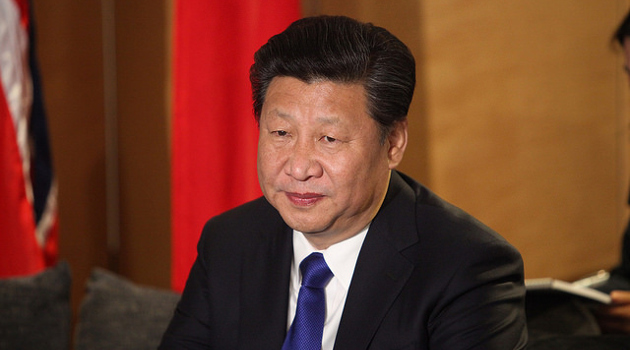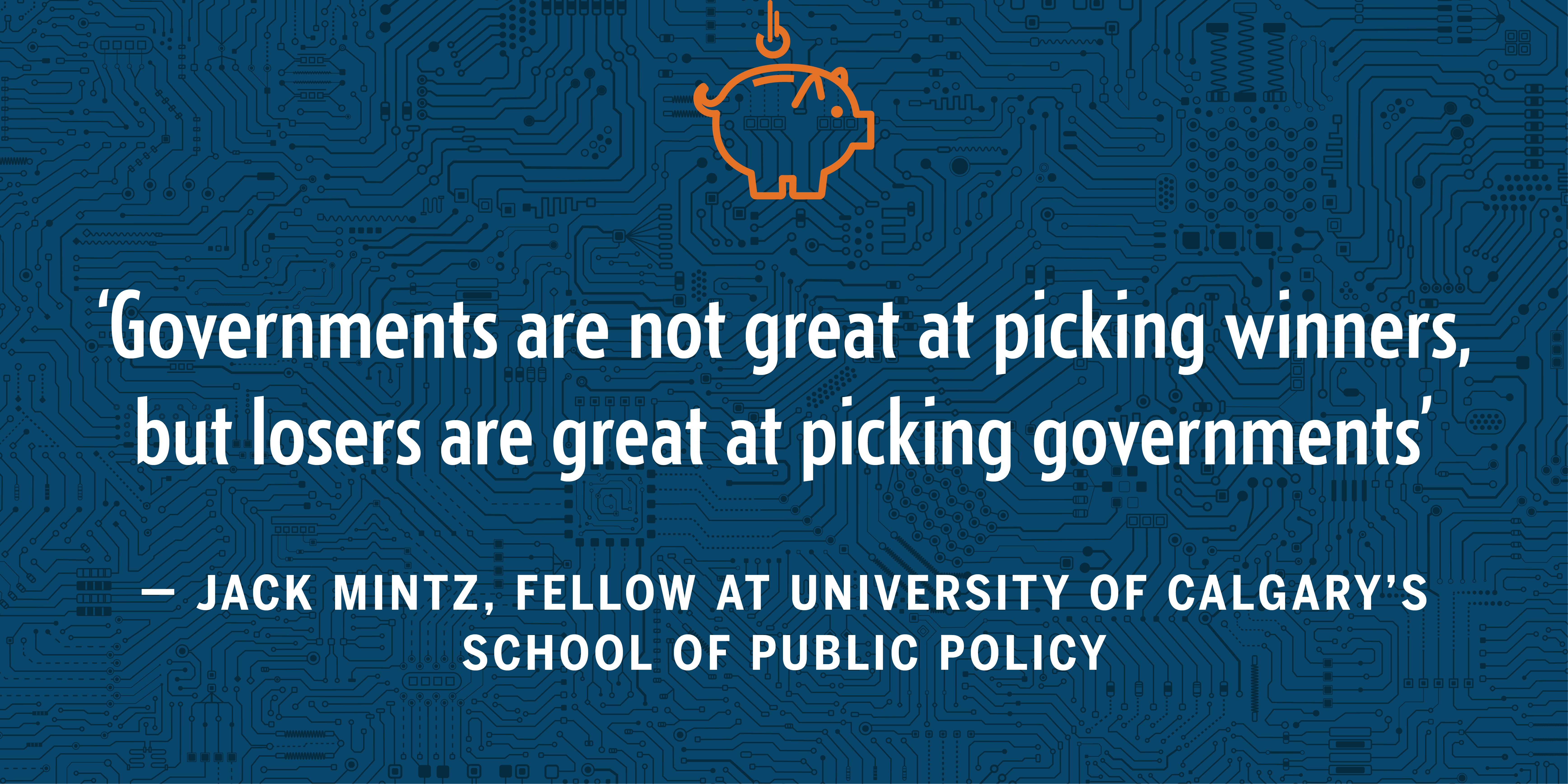If you want to understand how government really works, learn about “public choice.”
This is the common-sense theory that politicians and other people in politics often make decisions based on self interest, and it does a very good job of explaining why we get so many short-sighted and misguided policies from the crowd in Washington.
Public choice is especially insightful when compared to the naive view that politicians are mostly concerned with helping ordinary people.
 The theory also tends to generate some pithy concepts, such as “stationary bandit” and “predatory government.”
The theory also tends to generate some pithy concepts, such as “stationary bandit” and “predatory government.”
Another example is “grabbing hand,” which describes how intervention usually is a vehicle for helping government rather than helping people.
Today’s column is going to be about industrial policy (the incrementalist version of central planning) as an example of this phenomenon.
Specifically, we’re going to look at a new academic study that measured the impact of government control on the performance of companies in China.
Written by Marzieh Abolhassani, Zhi Wang, and Jakob de Haan, it’s a test of whether government is a “helping hand” or “grabbing hand.”
We’ll start with their description of the study’s methodology.
…the impact of government involvement on the financial performance of listed firms in emerging economies has received scant attention. This paper examines the relationship between government control of firms and firms’ financial performance
for the case of China. …we measure government control by the fraction of outstanding shares held either directly or indirectly by the government. …We classify firms as state controlled whenever the government is the shareholder with the largest number of shares held either directly or indirectly through pyramid structures.
Here are the key results.
Our empirical results suggest that firm performance is generally lower for firms where the government is the shareholder with the largest number of (direct and indirect) shares. Specifically, the return on assets, the return on equity and the market-to-book ratio are, on average, 1.3%, 2.0% and 8.2% lower for government-controlled firms. Both central and local government control is undermining firm performance. These findings provide support for the ‘grabbing hand’ theory of the government. … we make sure the estimates are not driven by differences in the size, age and leverage of the firms. Importantly, we also control for industry-region-year fixed effects, and therefore compare firms within the same industry in the same province during the same year, further enhancing the credibility of our estimates. …These results provide support for hypothesis and to theories conjecturing that management of firms controlled by the government have fewer incentives to maximize profits and shareholder value.
For those who like the wonky details, here are the key findings from their number crunching.
So what’s the bottom line?
Their conclusion tells us everything we need to know.
The results reported in this study broaden our understanding of the role of government influence on firm performance. …Our empirical results indicate that government-controlled firms have a worse financial performance than non-government-controlled firms. …These conclusions support the ‘grabbing hand’ theory proposed by Shleifer and Vishny.
So why do these results matter?
From an economic perspective, it’s further evidence that government intervention leads to a misallocation of resources. And that inevitably means living standards will be lower than they would be if markets were allowed to function.
A recent article from Foreign Affairs suggests enormous potential benefits if China ended industrial policy.
…state-owned enterprises… These inefficient behemoths control nearly $30 trillion in assets and consume roughly 80 percent of the country’s available bank credit,
but they contribute only between 23 and 28 percent of GDP. …The economist Nicholas Lardy has estimated that genuine economic reforms, in particular those targeting state-owned enterprises, could boost China’s annual GDP growth by as much as two percentage points in the coming decade.
Very similar to what I’ve written, so let’s hope that China returns to the policy of economic liberalization that led to genuine progress.
I’ll close with the depressing observation that there are people in Washington who are now agitating for industrial policy in the United States.
Needless to say, there’s zero reason to think that intervention from Washington will produce results that are better than intervention from Beijing.
P.S. It doesn’t matter if Republicans are trying to pick winners or Democrats are trying to pick winners. When politicians intervene, the economy suffers, which means less prosperity for ordinary people.
———
Image credit: Foreign and Commonwealth Office | CC BY 2.0.



